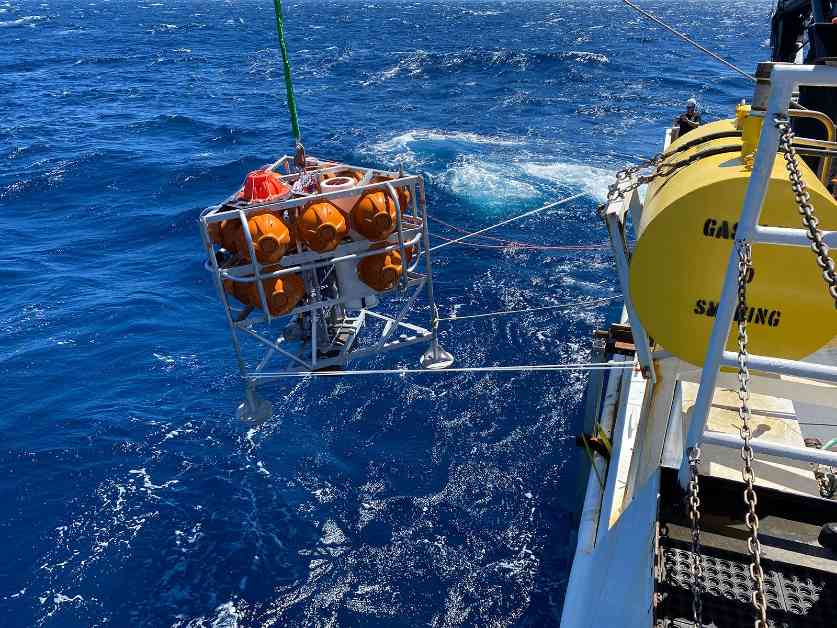A group of scientists and crew aboard the NOAA research vessel Nancy Foster are working on a unique project in the Gulf of Mexico. They are using benthic landers, deep-sea autonomous research platforms, to study the deep-sea corals affected by the 2010 Deepwater Horizon oil spill. These landers are equipped with advanced technology to collect data and samples from almost three miles below the surface.
The project, led by marine biologist Andrew Davies from the University of Rhode Island, aims to create a baseline for deep-sea habitats and understand how corals are recovering post-spill. The study is funded by NOAA and the Department of the Interior, using settlement funds from legal action following the oil spill. The information gathered could potentially lead to successful coral transplants in damaged areas.
Deep-sea corals are slow-growing and were heavily impacted by the oil spill. Even 15 years later, their recovery has been limited. Human activities, such as resource extraction and industrial fishing trawlers, pose a significant threat to coral reefs. The project aims to gather valuable data to help heal the wounded ecosystem and develop coral-cultivation techniques for injured habitats.
The landers, costing $300,000 each, are designed to withstand extreme ocean conditions and depths. They are equipped with various tools to collect samples, run experiments, and monitor water conditions. The landers will provide scientists with valuable insights into the breeding dynamics of corals and life in the depths of the Gulf of Mexico.
During a successful test run, the landers were placed within five meters of a targeted point on the seafloor, a significant achievement. The data collected by these landers could potentially prevent future disasters and aid in the restoration of damaged ecosystems. The project highlights the importance of preserving marine environments and preventing similar catastrophes in the future.






